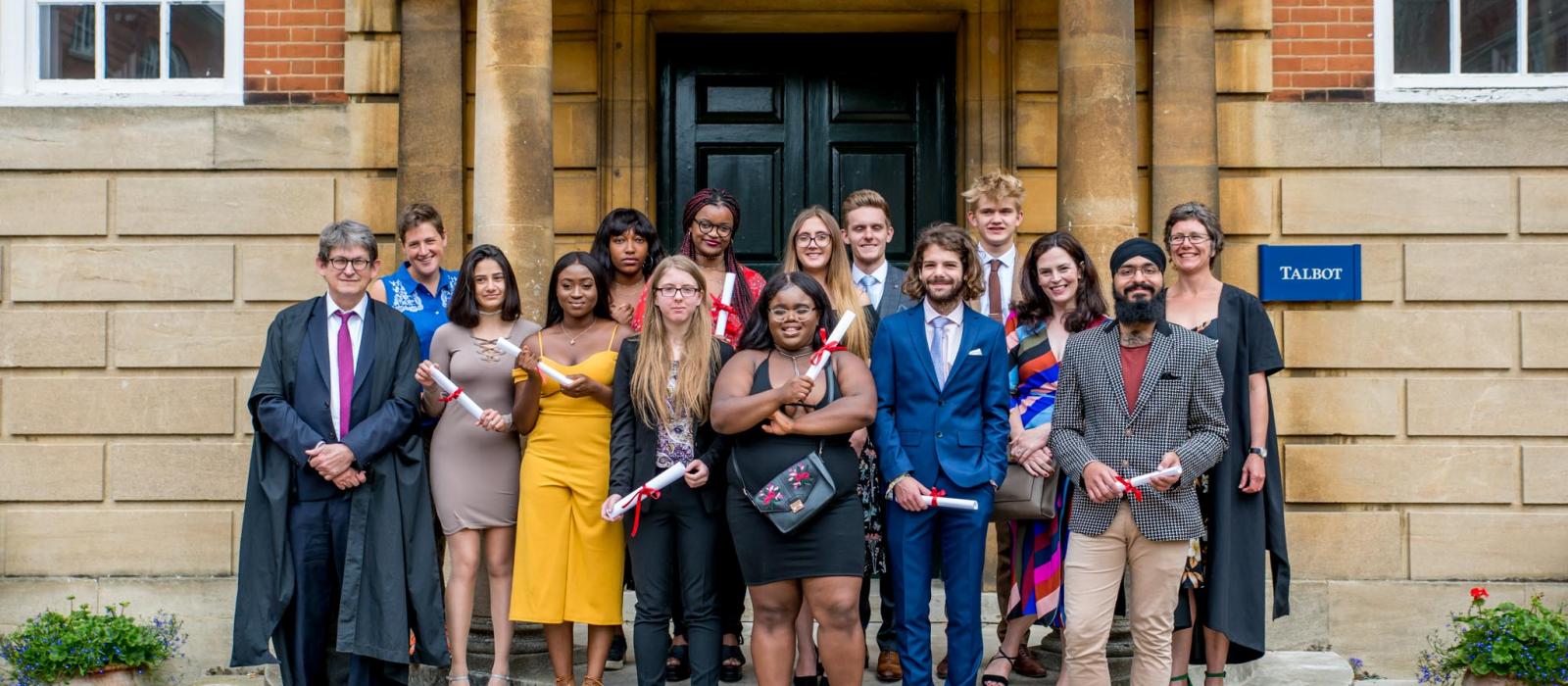
LMH Foundation Year External Review
Alan Rusbridger, Principal, LMH
One of the aims of the LMH Foundation Year project is that others can learn from it. To that end, the scheme is being externally as well as internally evaluated by academic experts who have extensive experience of widening participation in higher education.
Today we are publishing the first complete piece of external evaluation - by Dr Catherine Marshall, from Durham University. Dr Marshall was involved in the development and delivery of the Durham University Foundation Programme which was introduced in 1997. Since it started more than 2000 students have been enrolled on the programme with, on average, 65% progressing to Durham University degree programmes and 10% progressing to degrees at other institutions. Dr Marshall was Director of the Foundation Centre between 2000 and 2017 and inaugural Chair of the Foundation Year Network 2014-2017.
Dr Marshall spent time in Oxford a couple of months ago. In addition to speaking to tutors at LMH she met with present and past FY cohort members as well as other students, other Oxford heads of house and a number of others around the university.
The LMH Foundation Year was established in 2016, two students cohorts have successfully completed the course, with 100% on-course retention. All of the 2016 FY cohort progressed to higher education, most to Oxford University. In June 2018, the second FY cohort graduated from the course and we expect a 100% progression to higher education, with most students remaining in Oxford.
In the external evaluation of the FY, Dr Marshall reports, "Overall, the project is a bold undertaking, which in the current climate of poor media response to Oxford University’s recent publishing of its Admissions Report provides an important opportunity for the wider University to benefit from improved diversity in its student body."
"Widening Participation should not only be considered in terms of social justice and social mobility, and the benefits to the students who would not otherwise have the opportunity to develop and reach their potential, but there should also be consideration of the benefit to the University community to have a range of experiences and backgrounds which has been shown to improve the education experience for all students. Highly selective universities provide the graduates who go on to shape the country’s future and those individuals should be more representative of the whole population.”
"There is a problem of how to recognise and evaluate fairly the impact that socio-economic deprivation has on an individual’s educational attainment. Many universities resolve this issue by using Foundation Programmes, rather than simply making lower grade offers for direct entry to year 1, which not only allows some amelioration of the lack of social and cultural capital affecting student attainment but is also seen by many as a more transparent, fairer system.”
“This pilot project provides Oxford University with the opportunity to consider how it may utilise a Foundation Programme more widely as an additional widening participation initiative to address issues of diversity.”
In her conclusion, Dr Marshall writes:
“This is an excellent pilot project and LMH are to be commended on taking the initiative to develop a programme to help …change the diversity of the student body. An initial success rate of 7/10 students progressing to the first year of an Oxford is comparable across the sector.
The enthusiasm and engagement of the staff is ensuring that the best possible experience is being provided for students, and the support from Trinity College Dublin is informing the development of a suitable curriculum.
There are recommendations from within LMH and other parts of the University that the next stage is to validate the programme as an Oxford University course and include other Colleges and Departments. The ambition should be to engage all Undergraduate Colleges and all Departments.
There would be resolution of many of the issues outlined in the review above if the programme was validated in the same way as other UK University Foundation programmes:
- One admissions process to Year 0 would alleviate the issues around the timing of the second admissions process
- The tension between tutors teaching, assessing and being responsible for admissions would reduce
- Students would be full members of the University and therefore eligible for student finance
- Eligible for bursaries and fee waivers under the University’s OFFA agreement
- Eligible for any other support e.g. Moritz Heyman
- Able to access all student areas and support e.g. library induction and counselling
The programme would be evaluated with the central University quality enhancement processes ensuring transparent rigour in the delivery.